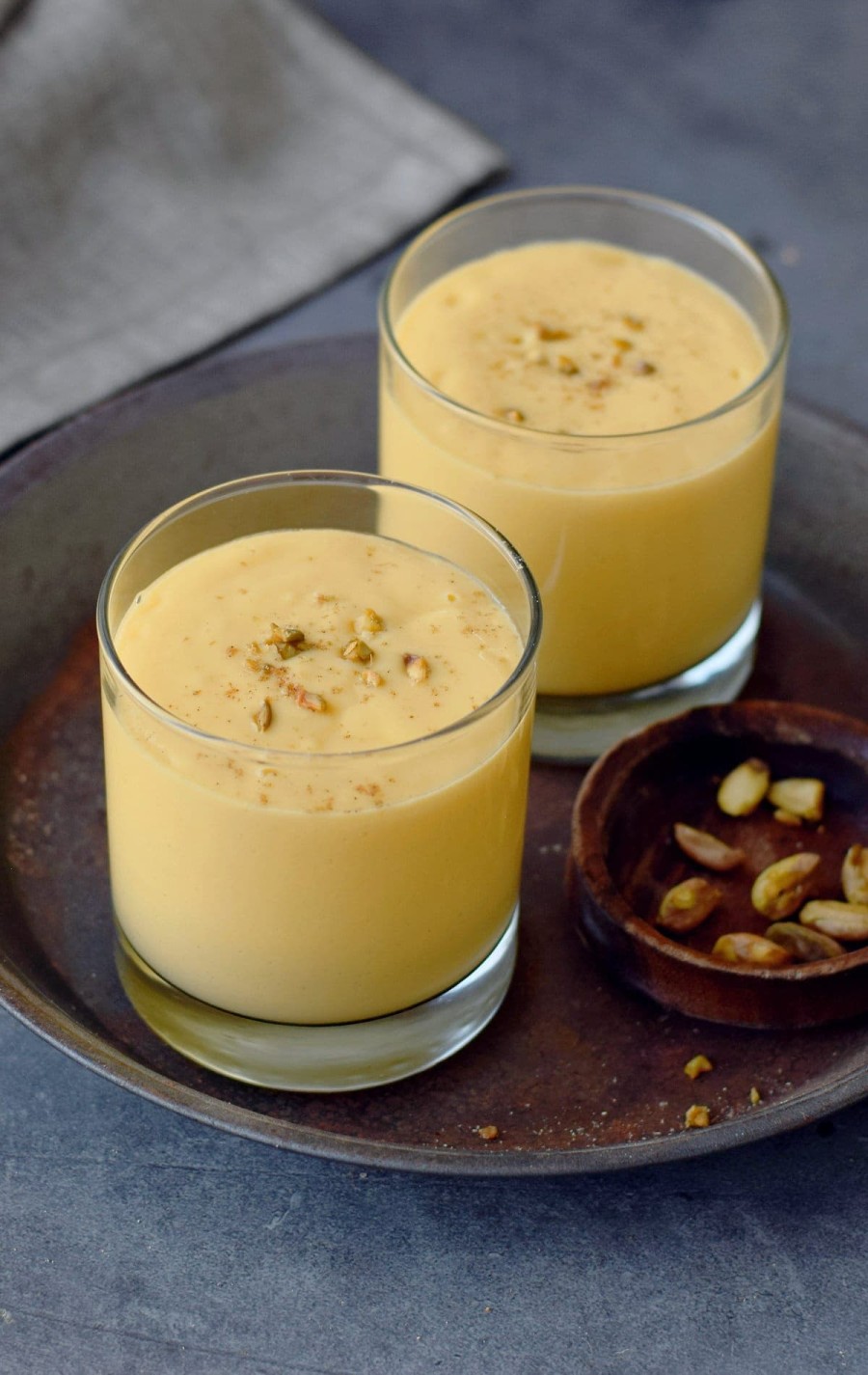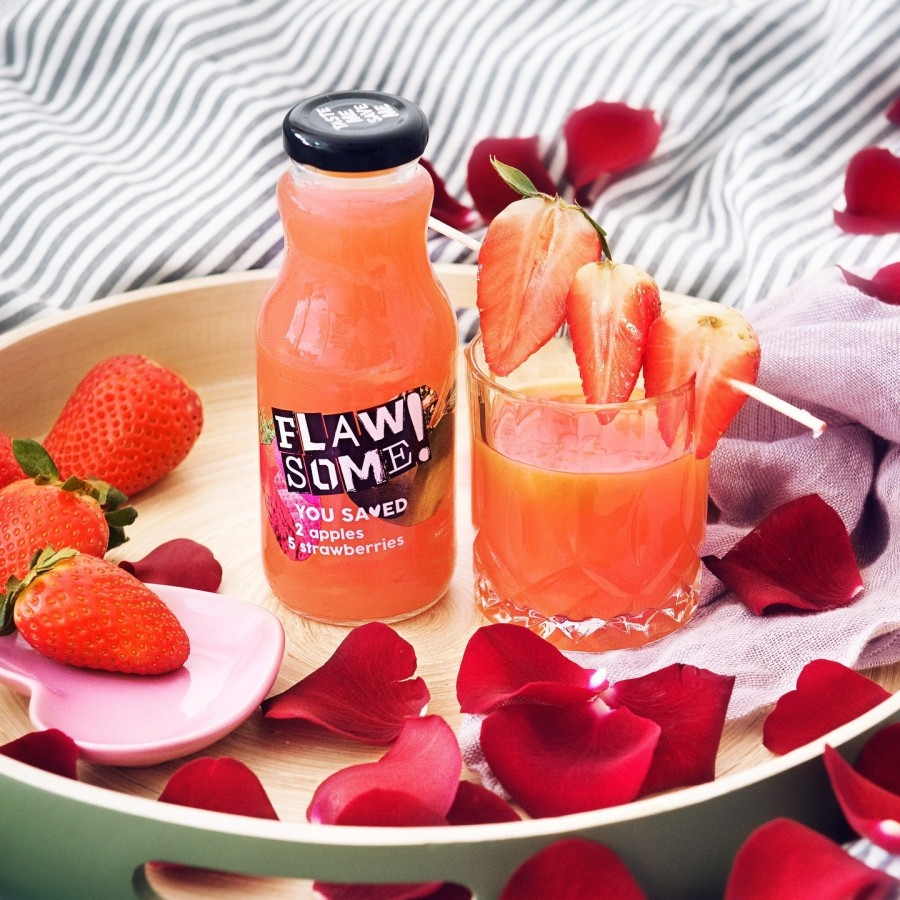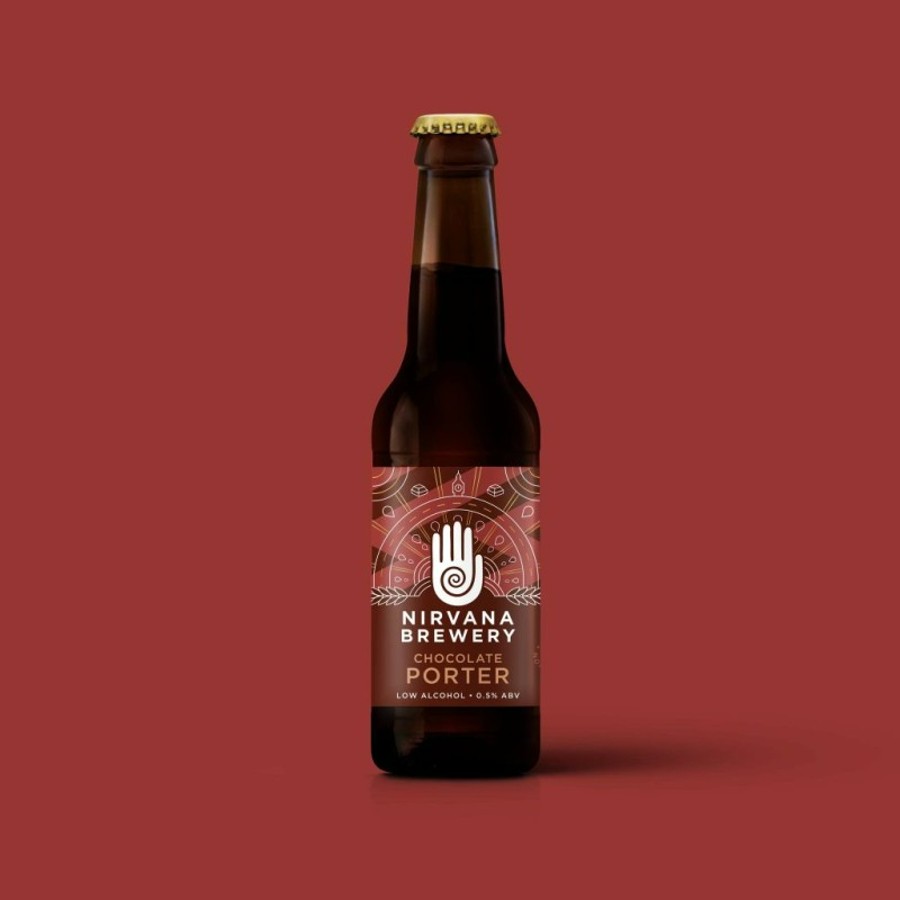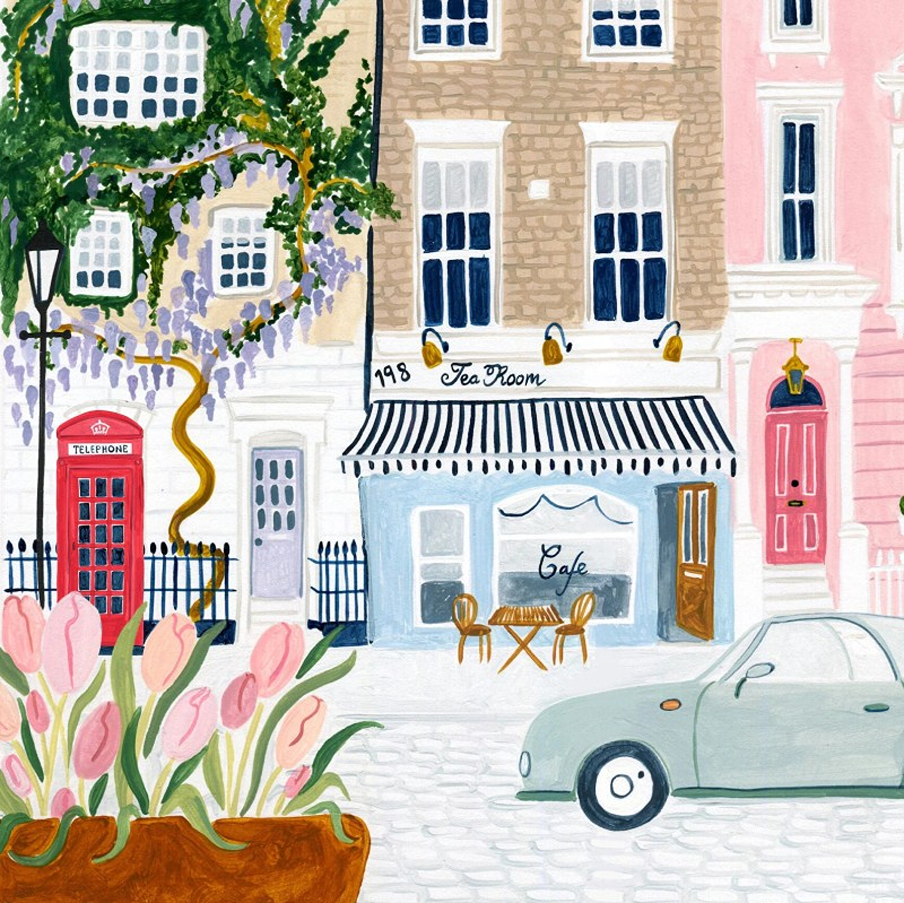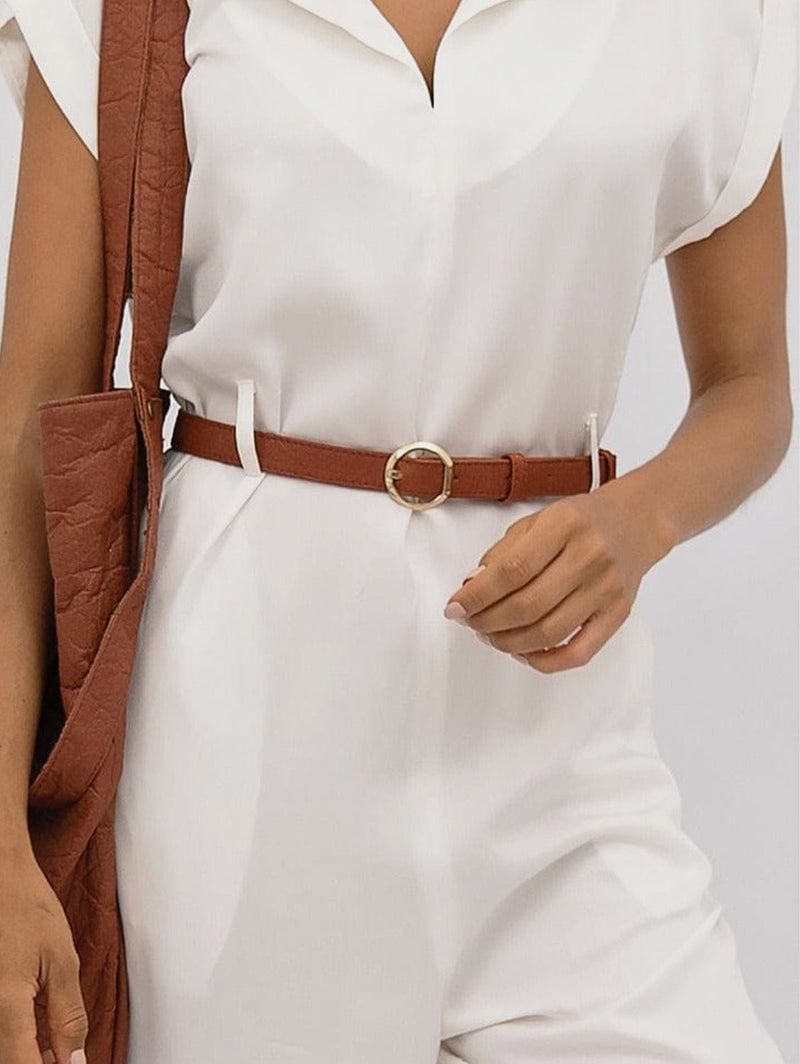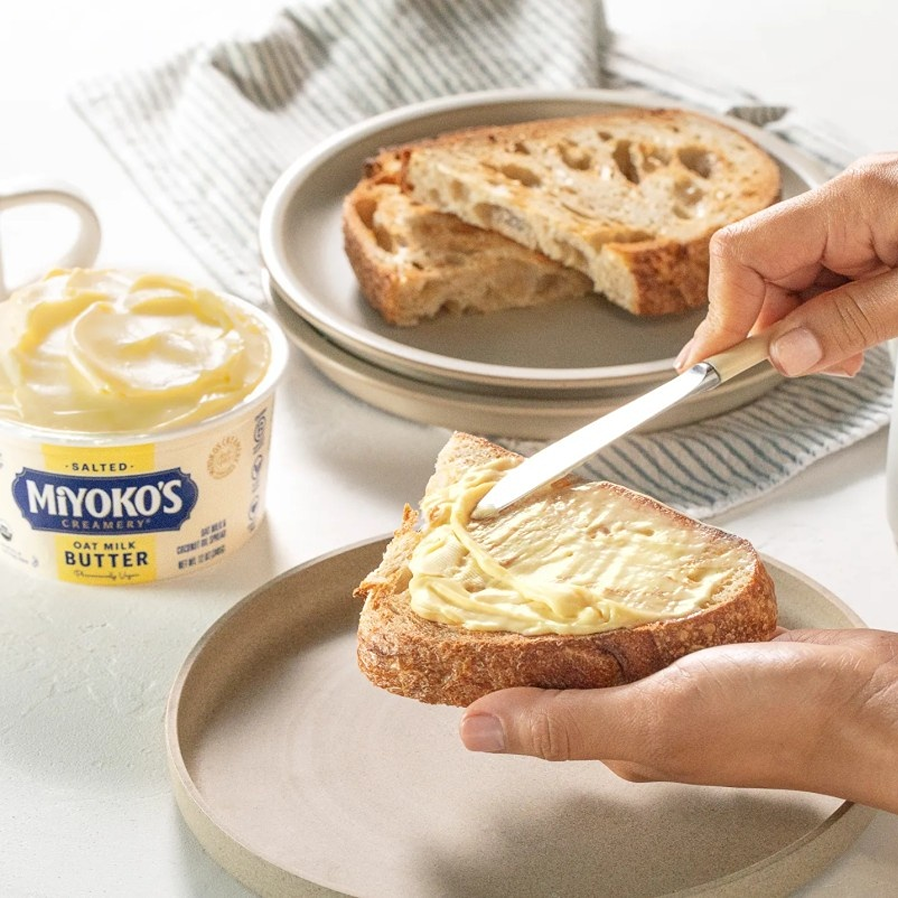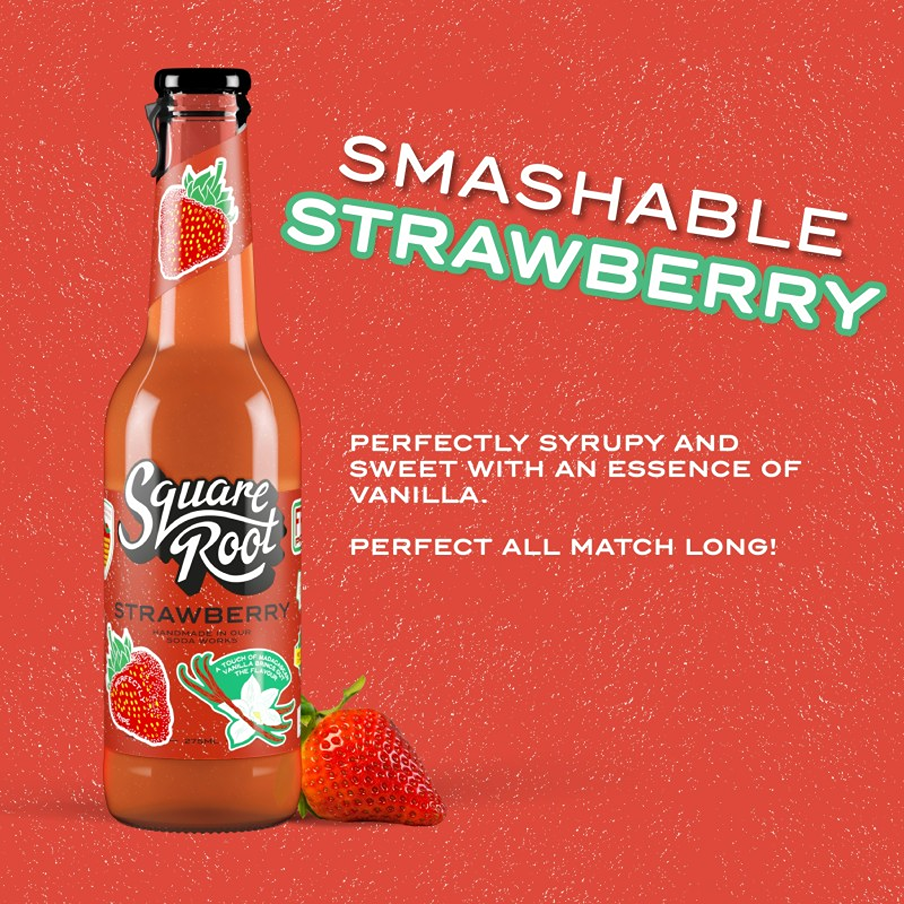
Most sodas in plastic bottles have refined sugar/sweeteners and are owned by Coca-Cola, Pepsi (owned by the world’s biggest user of palm oil) and Red Bull (which funds spinal injury tests on rats (having their backs crushed, then forced to climb stairs with their arms – some even have their heads cut off). A reason to support humane medical research.
Square Root Soda was created by two science boffins, who used to blow things up in test tubes. They first sold this solda from a vintage tricycle before heading to a commercial kitchen. The company is so obsessed with fruit, they think of things in terms of lemons (the tallest member of their team is 32.2 lemons tall!)
Avoid caffeine (and tonic waters due to quinine) for pregnancy/nursing and affected medical conditions (check before consuming rhubarb). Never leave drinks/foods sweetened with xylitol near pets, it’s lethal if licked.
The sodas are made from fruit they source direct. Strawberries come from the same growers used for Wimbledon, rhubarb is from the Yorkshire triangle, and lemons and oranges are from Sicilian friends. Flavours include:
- Lemonade
- Citrus crush
- Raspberry
- Ginger beer
- Nonalcoholic mojito
bubbly botanical sodas from Northumberland
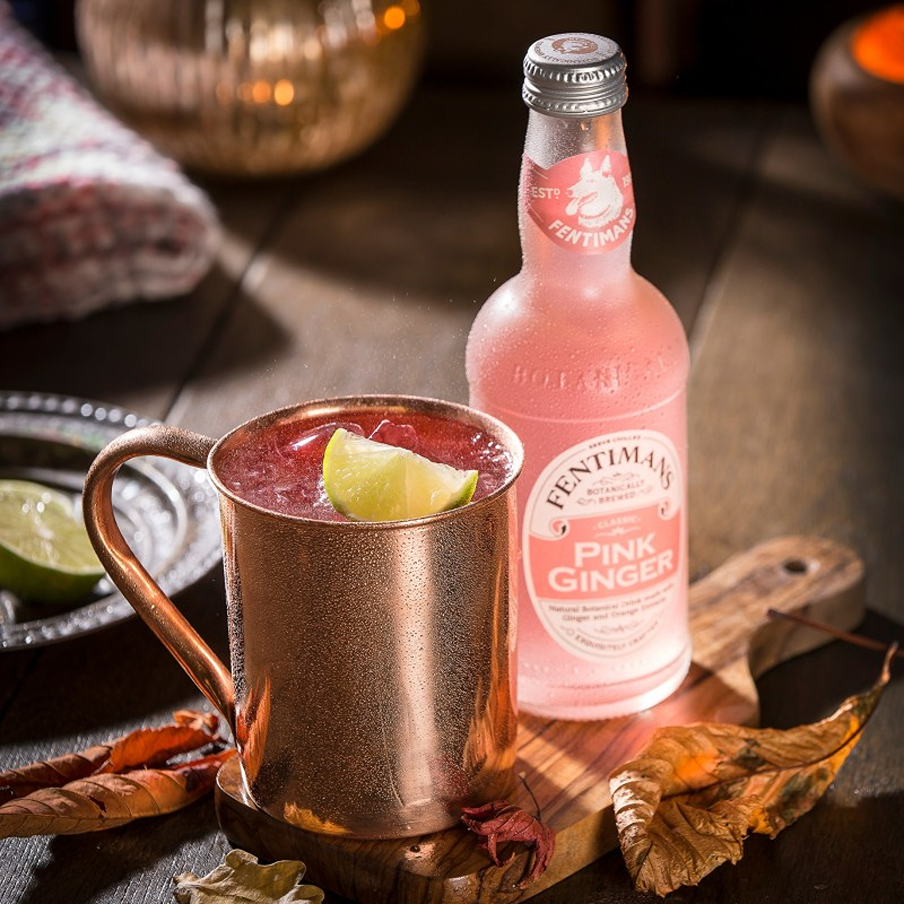
Fentimans (Northumberland) makes botanically-brewed drinks in glass bottles or cans. Often sold in pubs, most contains a little ginger. The company also sells tonic waters (including a low-calorie version). Flavours include:
- Elderflower rose tonic
- Sparkling elderflower
- Victorian & raspberry lemonade
- Ginger beer & pink ginger
- Curiosity & cherry cola
- Dandelion & burdock
- Lemon shandy
sustainable sparkling sodas from Scotland
Rapscallion Soda (Scotland) is a unique team that make lovely sodas like dry lime, burnt lemon and ginga ninja. There’s even one based on the local dish of cranachan (raspberries and ‘cream’). Nearly all soft drinks are made with cheap commercial shortcut ingredients, but this company uses raw quality fruit and are naturally low in calories, due to the natural sweetness of the fruit. They are also sweetened naturally with a little raw cane sugar. Each year, they offer seasonal sodas (these change by availability due to the weather – it’s Scotland!) The seasonal flavours include rhubarb, blueberry, strawberry and cranachan (raspberries).
‘sodas with soul’ in pretty cans
We always hear about corporate business and big brands being unethical, but they’re boring! The whole point about local and artisan is that things are original and fun and quirky. Dalstons make ‘sodas with soul’ in pretty cans. Made with real fruit and ‘nothing weird’. Flavours include:
- Cherry
- Elderflower
- Rhubarb
- Lemon
- Peach
- Ginger beer
Campaigners want a deposit return scheme (similar to Germany) as soda bottles are among the most littered items, and break into microplastics and wash out to sea. England has around 41 items of litter per kilometre, with Coca-Cola, Red Bull and Lucozade bottles the common culprits for drinks. It’s thought the latter is due to runners throwing away bottles when finished. The company is not that ambitious, with commitment being ‘100% sustainable plastic bottles’ by 2030′.
a natural tasty cola (with good karma!)
Karma Drinks is a brand of cola that uses organic ingredients, and uses profits to help people in Sierra Leone to earn a living income. The cola uses easy-to-recognise ingredients like lemon and vanilla and stevia/sucrolose (for sugar-free). The company also offers raspberry ‘razza’ lemonade and orangeade.
2 billion cans of cola are consumed each day around the world. But the West African communities who discovered cola nuts, don’t make a penny. So Matt, Simon and Chris got to work on creating a social enterprise that lets people enjoy a can of cola, but also helped communities in Africa.

